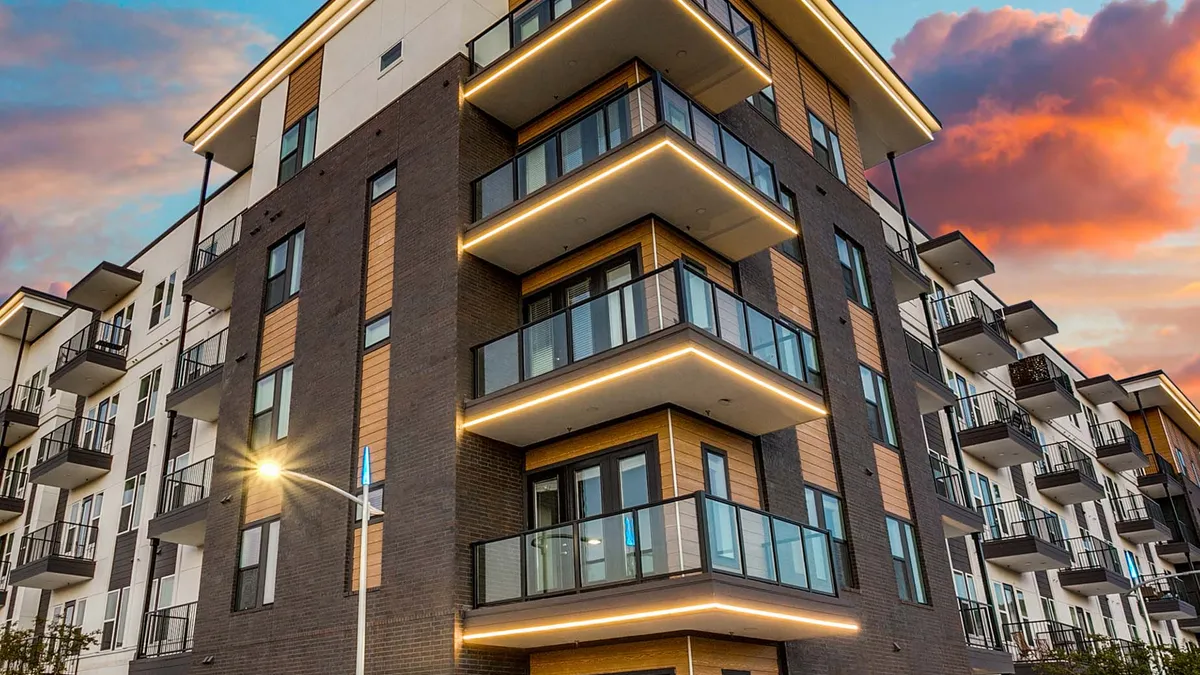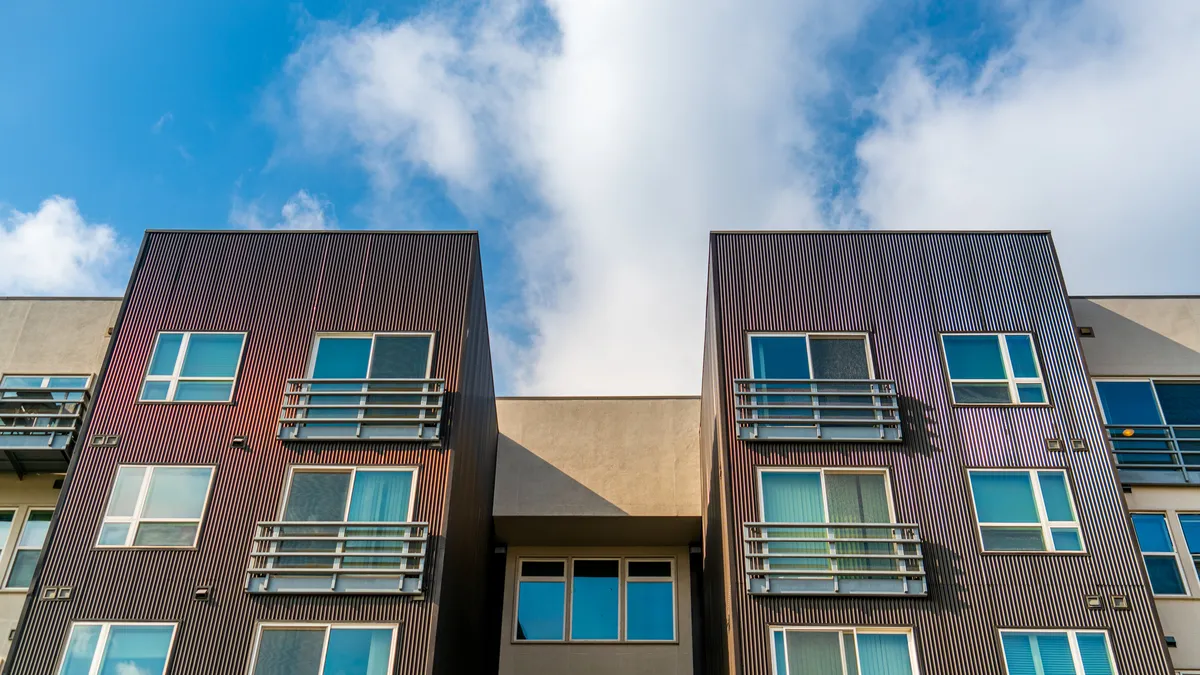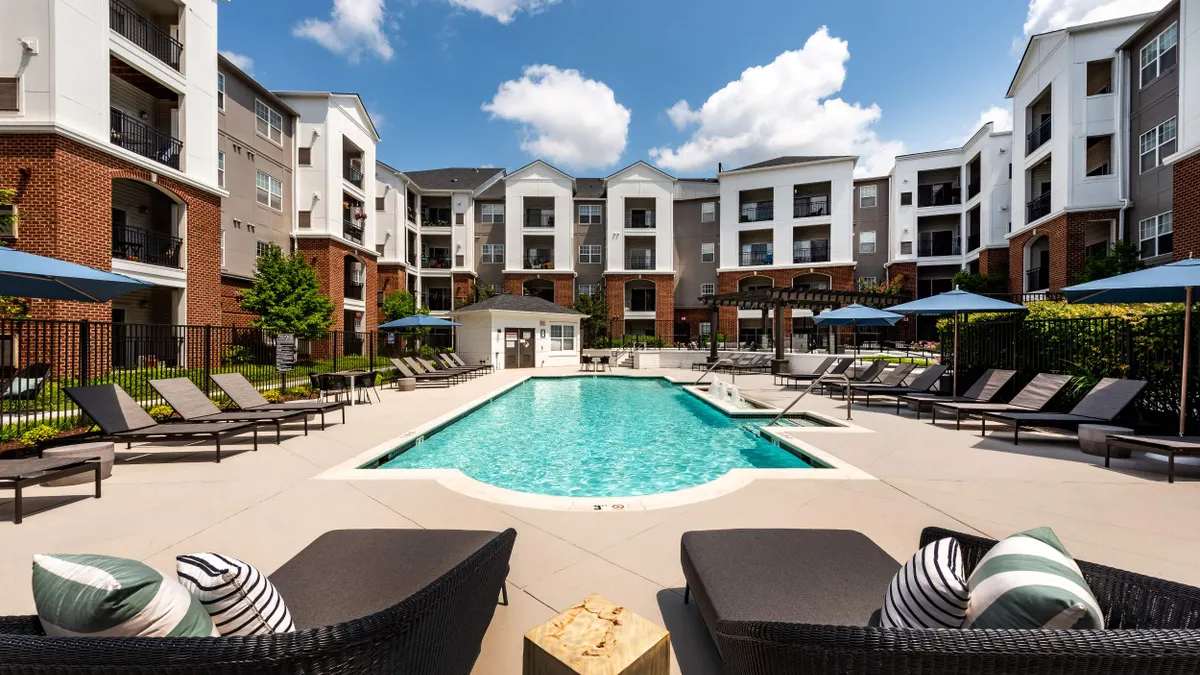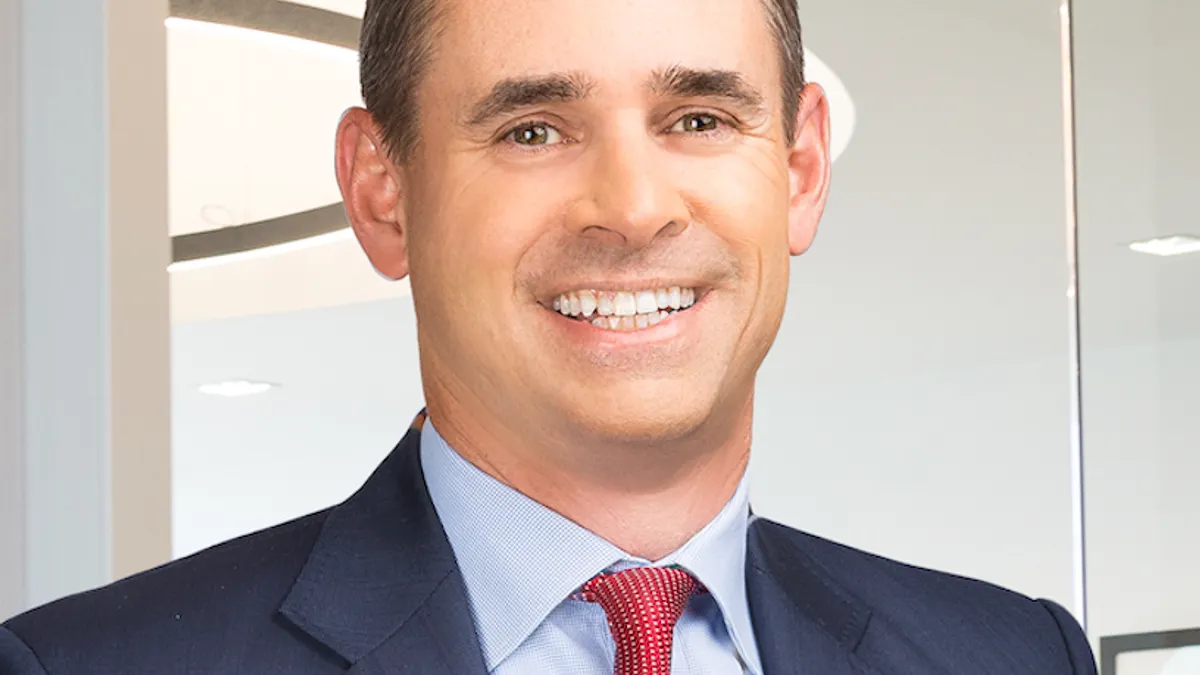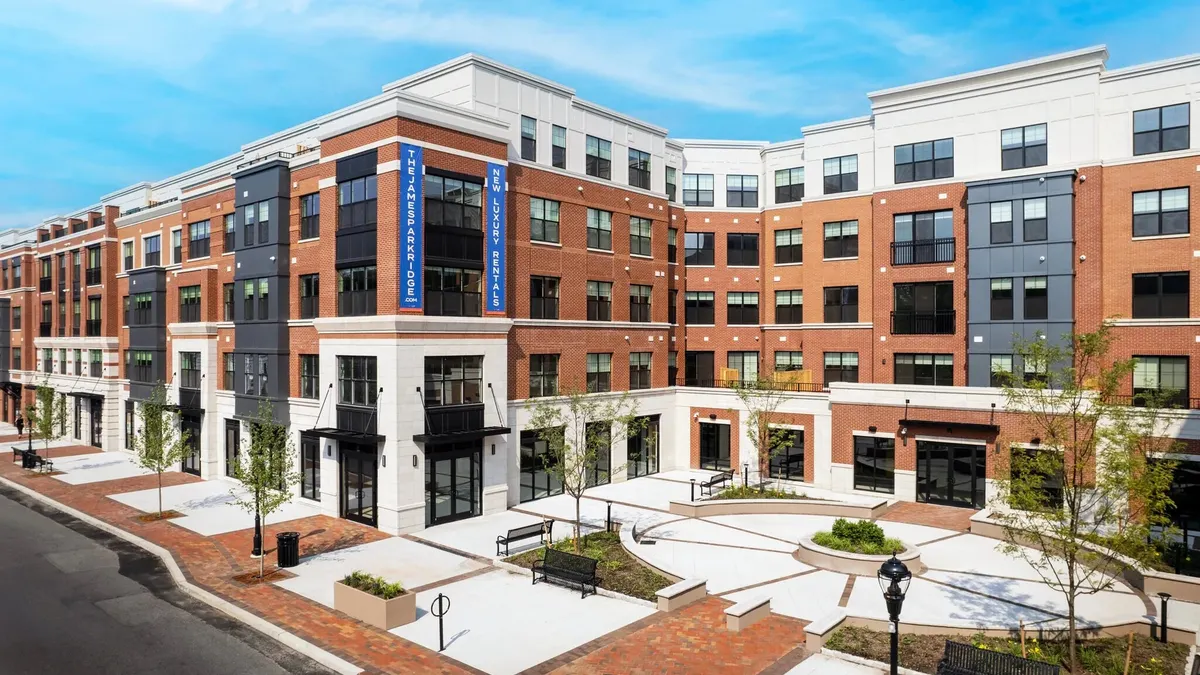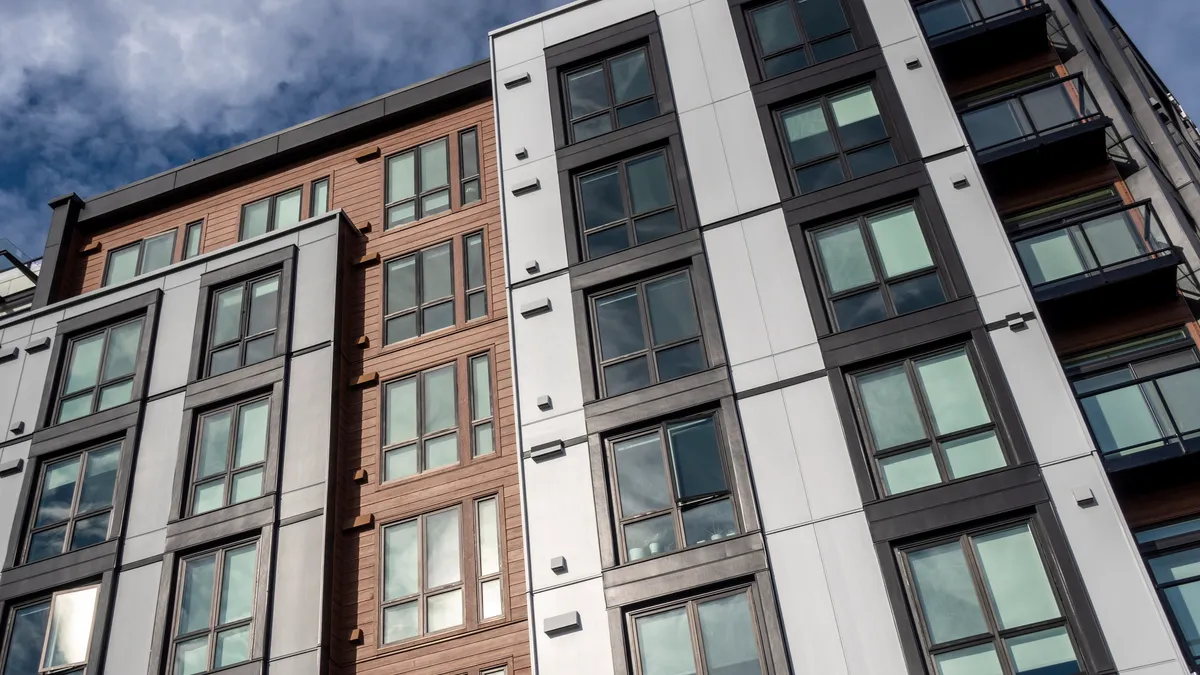Japanese conglomerate Sumitomo Forestry America’s purchase of a 90% stake in longtime Dallas-based apartment developer JPI’s operating platform earlier this month might have seemed to come out of the blue, but the seeds for the union were planted long ago.
JPI CEO Payton Mayes has known Atsushi Iwasaki, the leader of Sumitomo Forestry’s U.S. operations, since 2014 when he was managing partner at Southlake, Texas-based private equity firm Cephas Partners. “I developed a relationship with him for 10 years and I introduced him to JPI before I was there,” Mayes said.
In August 2019, Sumitomo closed its first project-level investment with the company. Since then, the Toyko-based colossus has committed over $200 million in seven JPI communities. “It was a great working relationship,” Mayes said. “Sumitomo has an extremely long-term perspective.”
As JPI’s three founders, including former CEO Bobby Page, began to think about ways to ensure that the firm they built lived beyond their lifetimes, Sumitomo expressed interest in the company’s operating platform. “We worked with them exclusively to make that happen,” Mayes said.
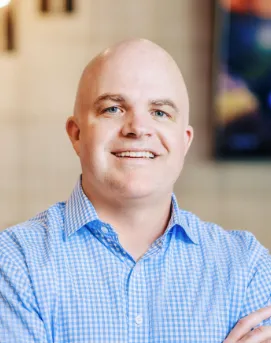
Eventually, Sumitomo acquired a 90% stake for up to $215 million, according to a Sumitomo press release. Mayes and JPI CFO Mollie Fadule hold the remaining 10%. The consolidated operating results for the acquisition target included net sales of $423 million and income before taxes of $13 million for the fiscal year ending Dec. 31, 2022, before the reorganization.
Fit matters
Although price was important, so was fit. JPI’s owners wanted a buyer that would be a good steward of the company they built, which was the No. 8 developer in the country with 5,051 units started on the most recent National Multifamily Housing Council top developer’s list.
“They said from day one that they were interested in JPI because of who we were,” Mayes said. “They were not trying to come in and change everything.”
But there will be some changes for the company. Sumitomo is separating JPI into six operating entities that will serve as holding companies, guarantors or development entities.
Under the terms of the agreement, JPI’s previous owners will continue to own equity in the projects that the developer is currently building or has completed. “We, as a service company, will continue to provide services to those assets,” Mayes said. “The pipeline, all the land and the projects that we will start going forward, the new company is acquiring all that.”
Wide reach
Sumitomo has already been a large player in the U.S. single-family business, buying companies like Bloomfield Homes and Brightland Homes, which operate in the Dallas area. It has also been active to a lesser degree in the multifamily space.
Through its SFA MF Holdings group, Sumitomo has funded projects by developers such as Dallas-based Trammell Crow Residential and San Diego-based Fairfield Residential. In 2018, the company bought Charlotte-based Crescent Communities’ multifamily, single-family, commercial and mixed-use businesses.
Between the projects started by Crescent and JPI and other developers funded by SFA MF Holdings, the company started 8,118 units in 2022, which would have placed it No. 6 on the National Multifamily Housing Council’s top developer’s list.
JPI currently only develops in Southern California and Dallas, but that footprint was attractive to the Japanese company. “By welcoming JPI to the Sumitomo Forestry Group, the group will strengthen its business base in California, a promising market on the West Coast,” Sumitomo said in its press release.
Finding efficiencies
While Crescent specializes in developing multifamily for high-income households through community-based, resident interactive development, JPI focuses on housing that offers affordable prices with high functionality and quality design, according to Sumitomo.
“Since the two companies differ in terms of their main clientele and the types of properties they specialize in, the group intends to share know-how within the group and develop business by leveraging the strengths of each company,” Sumitomo said in its press release.
The efficiencies behind the sale go further down the supply chain. As a forestry conglomerate, Sumitomo provides many of the wood products used to build apartments. For instance, An Cuong Wood-Working JSC in Vietnam manufactures cabinets used in Crescent’s and SFA MF’s development projects.
“The Sumitomo Forestry Group, with its global operations in the distribution and manufacturing of timber and building materials as well as the single-family homes business, will create synergies unique to the group and further strengthen its earnings base in the United States,” the company said in the release.
Market slowdown
Sumitomo is taking a bigger stake in the U.S. apartment industry at a pivotal time. After interest rate increases and bank failures last spring, developers around the country are having difficulty getting new apartment projects to pencil out. Despite temporary market challenges, JPI, with the backing of Sumitomo, is evaluating expansion opportunities. It has already moved into affordable housing and is considering expansion beyond its two core markets.
“We are happy in the markets that we operate in today, but it's certainly part of our business plan to grow,” Mayes said.
When it moves into a new market, the company doesn’t want to do a few deals. CFO Fadule is working on standardizing the company’s development process to reduce risk as it enters new cities.
“When we decide to expand geographically, we don't want to just go to city A and do a project there and go to city B and do a project there,” Mayes said. “We think there's a lot of benefits in being the dominant player in that market.”
Click here to sign up to receive multifamily and apartment news like this article in your inbox every weekday.



